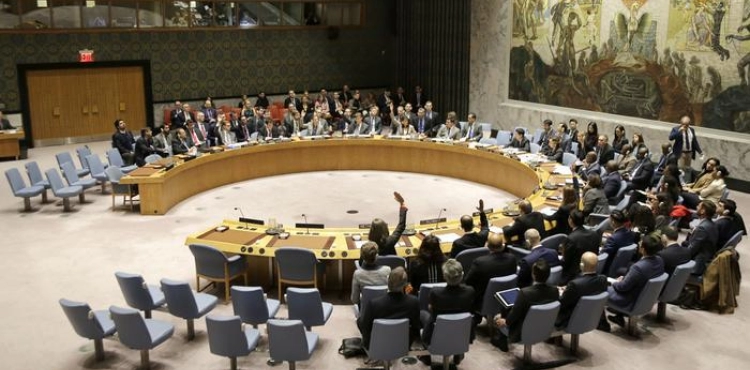Russia and China on Thursday vetoed a UN Security Council resolution passed by Germany, Kuwait and Belgium that was approved by 12 countries to impose an "immediate ceasefire" in the northwestern province of Idlib. Syria, once again, reflected the deep division in the Security Council over the dossier.
This is the 13th veto Russia has used to block a resolution on Syria since the war broke out in the country in 2011.
Of the 15 States that make up the Security Council, 12 voted in favor, while Equatorial Guinea abstained.
The three sponsors formally asked Russia not to veto the text, which was negotiated for 15 days, but was rejected.
Russia required the passage of the draft resolution to include an exception for "military operations targeting individuals, groups or entities associated with terrorist groups," a demand rejected by Westerners as the clause opens the door to various interpretations and to the continued targeting of civilian installations.
According to the German Ambassador to the United Nations, Christoph Hosgen, the three countries sponsoring the draft resolution agreed to include a reference to "terrorist measures" provided that these procedures respect international law.
"The bombing of hospitals, schools and civilian facilities does not at all contribute to the fight against terrorism," said Belgian Ambassador Marc Bexstein de Poitswervi.
On the other hand, his Russian counterpart Vasily Nebenzia condemned the "increasing humanitarian sentiments" of the members of the Security Council whenever the Syrian regime took a step forward on the road to regaining more areas.
"It´s the same tone," the Russian diplomat joked. "Terrorists are becoming representatives of the opposition."
"The fate of the resolution was doomed from the start and you deliberately divided the Security Council," he said, ahead of the annual work of the UN General Assembly at the level of heads of state and government in New York.
For his part, Chinese Ambassador to the UN John Zhang said that "the humanitarian issue should not be politicized," calling for the contribution of everyone to the reconstruction of Syria.
All countries that voted in favor of the draft resolution condemned the Russian and Chinese vetoes at varying levels.
The United States has warned of a new military operation in Idlib and urged the United Nations to hold those responsible to account for the deteriorating humanitarian situation in northwest Syria.
Before the meeting, French Ambassador Nicolas de Riviere stressed the link between the end of the conflict and the reconstruction of the country.
"As long as there is no solution in the humanitarian and political aspects, France, Europe and many other countries will not be involved in the reconstruction," the ambassador warned.
For the past four months, the Syrian regime has been carrying out intermittent strikes in Idlib.
The United Nations has since warned of a deteriorating humanitarian situation in the province, home to some 3 million people, including 1 million children.
For his part, condemned the Syrian ambassador to the United Nations Bashar Jaafari draft resolution "has nothing to do" with the stated goal of providing humanitarian assistance. He said he ignored "the causes of conflict and terrorism".
In the wake of the veto, Russia and China introduced a rival resolution to the vote that also provides for a ceasefire.
However, unlike the other draft resolution, the Russian-Chinese draft stated that "the cessation of hostilities does not apply to military operations against individuals, groups or entities associated with terrorist groups."
As expected, the draft resolution was rejected as it did not receive the nine votes out of 15 necessary for adoption.
The vote was a setback for Moscow and Beijing, the only two to vote for. Four countries - Indonesia, South Africa, Cote d´Ivoire and Equatorial Guinea - abstained, while the other nine voted against.
The German ambassador regretted that the Russian-Chinese draft resolution was put to the vote without any negotiations on it.












